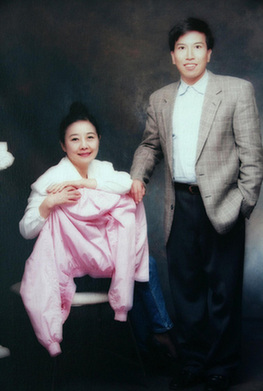Society
Netizens launch attack on feng shui master over forged will
By Sherry Lee and Nicole Wong (China Daily)
Updated: 2010-02-06 09:23
 |
Large Medium Small |
HONK KONG: Tony Chan, the feng shui master under scrutiny for producing a forged will of Hong Kong tycoon Nina Wang, has become the target of an online hate campaign.
 Nina Wang (L) and Tony Chan Chun-chuen are seen in an undated file photo, provided by Jonathan Midgley of Haldanes, the representative lawyer of Chan. Hong Kong's high court ruled in favour of the charitable foundation representing Chinese tycoon Wang's family on February 2, 2010. [Agencies] |
Public anger erupted this week after a judge ruled that a will submitted by Chan in 2006 was fake and awarded the HK$ 100 million ($13 million) estate to Chinachem Charitable Foundation, the rival claimants.
Multiple groups were immediately set up on social networking websites to gloat over his "defeat", some boasting 33,000 members, with many posting newspaper articles and photos from the court battle.
|
||||
Fan Yip, a cultural critic, believed this style of quasi-journalism is a positive phenomenon.
"It raises public awareness of many topics that may otherwise fade from the news. It encourages young students to develop a sense of responsibility towards society," Fan said.
However, the Internet attack came as campaigners and some experts called for laws to outlaw cyber bullying.
"In the United States, some states legislate against people maliciously using personal information to attack others on the Internet. It is a criminal act," said Dennis Wong Sing-wing, associate professor of the department of applied social studies at the City University in Hong Kong.
Cyber bullying has escalated in Hong Kong in recent years, with victims often being young people.
Police are restrained from intervening in Internet attacks unless clear criminal intent can be demonstrated. That can include intimidation or distribution of obscene articles, said Wong. Victims can bring lawsuits against attackers for defamation but they still must prove they have suffered in material ways and also face legal costs, he said.
"The government should control online bullying. I saw much bullying going on in people's blogs," said a victim of cyber bullying who gave her name as Kimmy.
She said her experience with bullying started when she became the subject of gossip in a classmate's blog last year. Within a few days it had escalated to 10 classmates ridiculing her and one threatening to "beat her up", she said.
"I was so scared and had to ask friends to walk me to and from school," she said, adding that the people also targeted her through her instant messaging and mobile phone accounts.
However, Cecelia Ng Kam-kuen, a social worker for the Hong Kong Federation of Youth Groups and BeNetwise educational campaign, said legislation might not be the solution.
"Tens of thousands of people look at these sites and thousands of people leave messages. How can they arrest thousands of people?" she asked.










